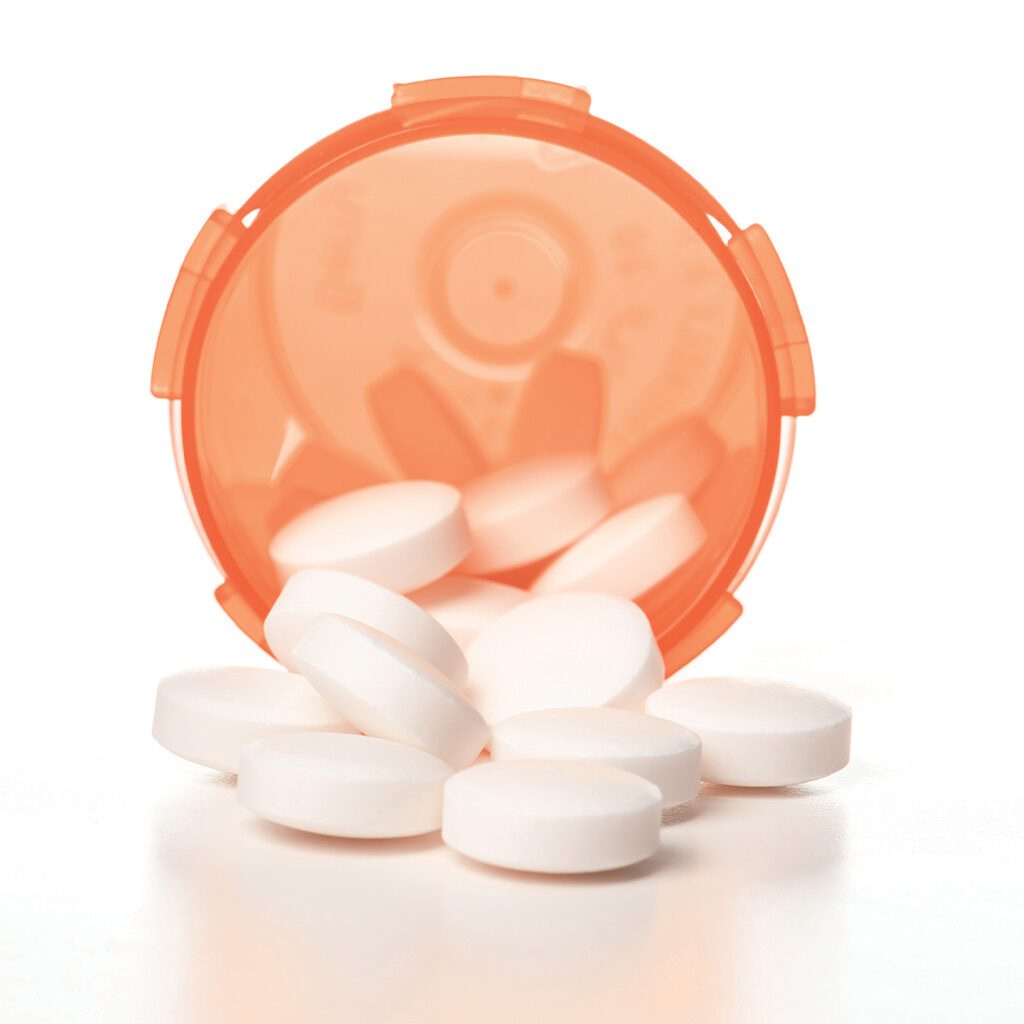A healthy diet is always important, whether you’re three, 43, or 73, but especially as you age and your body’s needs change. Good nutrition can help prevent certain diseases – many of which older adults are at a greater risk of developing. Studies have also shown that a healthy diet can extend one’s lifespan by several years. However, aging makes it increasingly challenging to consume and absorb the nutrients your body needs. Here, we consulted with dietitians to learn more about common age-related nutrition issues and solutions.


Older adults may need fewer calories than a younger adult because of differences in activity, metabolism, and other physical changes of age, but they still need similar nutrients to maintain a healthy body. Good nutrition can also help prevent chronic diseases like heart and kidney disease, high blood pressure, diabetes, high cholesterol, and other illnesses resulting from the physical effects of age, like osteoporosis. According to Melanie Moyers, a consultant dietitian for Morning Pointe Senior Living, diet can even decrease a person’s risk of Alzheimer’s. “We’ve always heard a healthy diet is important to prevent chronic disease, with phrases like ‘an apple a day will keep the doctor away,’ and research findings have emerged to back it up. If you want to try to prevent Alzheimer’s disease, or other chronic diseases, reviewing and making changes to your diet is an important first step,” she says.
Some of the most common problems older adults face include muscle mass loss, hydration and appetite issues, and medication interactions that affect the body’s ability to absorb nutrients.
Muscle Mass
“Digestion generally becomes less efficient as we age, which impacts digestion and absorption of protein, vitamin B12, calcium, and iron.
Protein is of particular concern because aging also contributes to a loss of muscle mass ranging from 10-30% per decade, and adequate protein intake is crucial to help maintain muscle mass,” says Patrick Wortman, a registered dietitian and personal trainer with CHI Memorial Integrative Medicine Associates. There are many high-protein foods beyond meat and poultry, such as eggs, beans, lentils, and soy alternatives, to consider for a varied diet that helps maintain muscle mass. “Protein powder or ready-to-drink liquid supplements can be very helpful to boost calories and protein as well,” adds Wortman.
Hydration
Water is essential for almost every function of the body, from keeping joints moving to pumping blood through your body. Unfortunately, with age comes a loss of the sensation of thirst, so it can be difficult to stay hydrated, especially when combined with weakened bladder muscles that raise the risk of incontinence and more frequent bathroom visits. Wortman explains, “The kidneys also work less effectively as we get older. These two issues combined often increase the risk of dehydration, which can be worsened by medications for blood pressure or other conditions.”
Dehydration leads to urinary tract infections, heat stroke, and heart and kidney problems, and it inhibits your body’s ability to fight infections. It also causes fatigue, weakness, and dizziness, which increases the risk of falls and injuries. The obvious solution to this problem is to drink water – even when you don’t notice you’re thirsty – but you can also choose foods with higher water contents like cucumbers, watermelon, celery, lettuce, and soups and broths. It may be helpful to build water breaks into your schedule so you don’t forget to drink throughout the day.
Appetite
Appetite often decreases as you get older, so it can be difficult to make sure you’re getting enough nutrients if you don’t feel like eating. Other contributing factors include medications that decrease appetite and smoking, which can affect your sense of taste and smell. If you smoke, consider cutting back or quitting altogether. To make eating more enjoyable, use fresh herbs and citrus juices to make flavors more vibrant, and eat with friends and family to add a fun social aspect to meals if they’ve become more of a chore. Practical concerns such as having mobility issues or physical difficulty cooking are also a factor, so you can look for simple meals that require less labor to make. “It is normal for our appetite to decrease as we age, with physiological changes to the digestive system and a decreased need for energy. The time to be concerned is if it decreases to a degree that negatively affects our nutritional status, resulting in malnutrition,” Moyers explains.
For older adults struggling to get enough nutrients, Wortman recommends different things, depending on the cause: “If teeth or dentures are an issue, getting them fixed can be very helpful. Availability of food can often be another issue. Having meals pre-cooked that can be heated up, or dividing meals into smaller portions that can be easier to manage may help. Keeping healthy snacks close at hand can also help.” When it comes to specific vitamin deficiencies, Moyers has some additional advice. “Typically, I would recommend fortifying a favorite food or beverage to add protein, calories, and nutrients. Smoothies packed with additional nutrients are also helpful.
I would also recommend a multivitamin-mineral supplement to try to make up for some of the nutrients they may be lacking from a decline in appetite,” she says. “Further investigation related to the root cause of decline in appetite and lab tests, such as vitamin B12 level, would be warranted to help identify other possible nutrient deficiencies and individualized interventions.”



It is normal for our appetite to decrease as we age, with physiological changes to the digestive system and a decreased need for energy.”
Melanie Moyers
Keep in mind that while changes in appetite are normal, they should be gradual. When should you be concerned? Wortman explains, “A more rapid or significant drop might indicate a more serious problem. Obvious signs of wasting or rapid muscle loss would also indicate the decrease in appetite is not normal aging.”
Malnutrition
A more severe condition, malnutrition could be marked by a sudden decrease in appetite. According to Moyers, signs of malnutrition include, “weight loss, decline in appetite, fatigue resulting in inability to finish a meal, dental problems or difficulty chewing food, and reduction in hand grip strength. Watch out for changes to condition of hair and nails – thinner hair and pale nails may indicate iron-deficiency anemia.” Caretakers and loved ones should keep an eye out for these warning signs. Wortman advises keeping up with routine bloodwork to monitor certain vitamin levels. “Vitamin D and B12 can be checked with simple blood tests. Signs of extreme B12 deficiency can be numbness or tingling in fingers and toes, difficulty walking, mood changes, and memory loss,” he shares. Other indicators of severe muscle mass loss due to malnutrition are “excessively saggy skin or inability to accomplish even simple tasks due to lack of strength,” Wortman explains. “Walking speed is another indicator of muscle/balance status. Taking longer than five seconds to walk 13 feet is an indicator of potential issues.”
A malnourished body is much less able to fight off significant health problems, delaying healing processes and increasing the length of hospital stays, so it’s important to avoid this vulnerability.
Medication
Wortman also advises elderly folks to be aware of the way their medications interact and work together, as they may cause changes in the body’s ability to absorb or use nutrients. He says, “Acid blocking medications for reflux can decrease B12, iron, calcium, and magnesium absorption.



Antidepressants can use up or deplete riboflavin and folate in the body, and some diuretics can cause excess excretion of potassium.” Moyers adds, “Be aware that medication side effects can cause decreased appetite and nutrient deficiencies – Metformin, for example, may cause a vitamin B12 deficiency. It is important to review possible side effects of all medications.” Don’t be afraid to ask your doctor or pharmacist any questions you have about side effects of medication and other health concerns.
It’s never too late to make improvements to your diet. If you’re not sure where to start, speak with your primary doctor about consulting with a registered dietitian who can help you form healthier habits regarding your nutrition.



Patrick Wortman
Registered Dietitian & Personal Trainer, CHI Memorial Integrative Medicine Associates



Melanie Moyers, MS, RDN, LDN
Registered Dietitian-Nutritionist, Morning Pointe Senior Living

